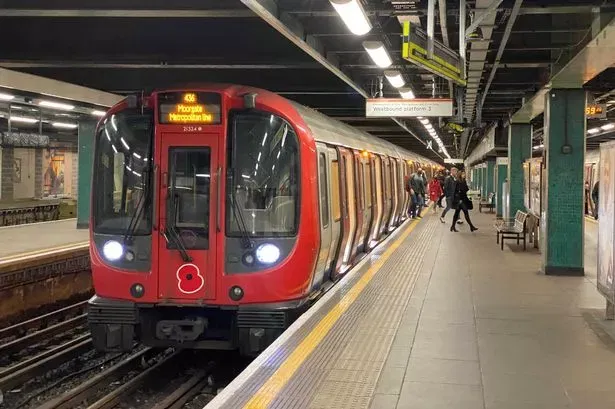
Samantha Holmes, a 29-year-old mother of two and licensed nurse, found herself standing on a packed London Underground train while breastfeeding her two-month-old daughter, Celine. Samantha was irritated and dismayed by the lack of empathy and assistance from other passengers on the Metropolitan line train during the evening rush hour.
Samantha and her husband, Jarred, had boarded the train at London Euston, hoping to find a seat where Samantha could comfortably nurse their hungry newborn. However, as they entered the crowded train, not a single passenger offered their seat to the distressed mother. Samantha recounts the ordeal, saying, “Our daughter had some bad trapped wind, and nothing I was doing was consoling her. So we were standing initially, and I’d expected someone to give me a seat with her being so hysterical. But no acknowledgement, and I just said to my husband I’d have to feed her.”
Samantha’s story shines light on the difficulties breastfeeding mothers confront when taking public transit. She emphasized that many mothers in similar situations often feel “invisible” and unsupported. In her frustration, she asked her husband to record the incident, hoping to raise awareness about the issue.
Samantha said that “It’s hard enough to keep your balance on your own, never mind whilst trying to feed a two-month-old child. That’s when I said to my husband, take a photo of this as I couldn’t believe it. I felt invisible – could anyone even see me? Everyone had their heads down. I’m comfortable breastfeeding, so that doesn’t affect me. But for some people that are nervous to feed in public – that could have caused them to stop breastfeeding. I just couldn’t believe it. My blood was boiling,”

Transport for London has clear requirements indicating that all buses, Tubes, trains, and trams have designated priority seats for anyone who require them. Additionally, passengers can request a “Please Offer Me a Seat” badge and card or a “Baby on Board” badge to signal their need for a seat. However, the incident involving Samantha highlights that these guidelines are not always followed by commuters, leaving mothers like her in challenging situations.
This incident has rekindled a broader discussion about commuter etiquette and the responsibilities of passengers towards each other. A recent study found that just six out of ten commuters would give up their seat for an expectant mother. Shockingly, one in four commuters admitted they had not given up their seat for a pregnant woman, often because they were unsure if she was pregnant or simply out of concern that offering a seat might be misconstrued.

















